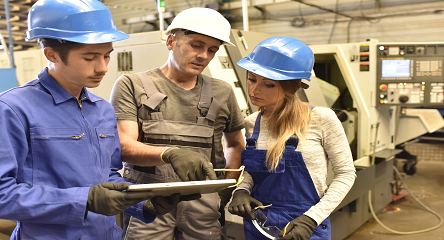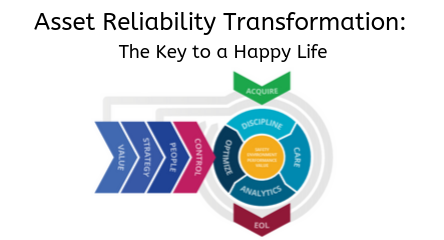When it comes to implementing reliability improvement, it is important to remember that reliability happens out in the field, not in an office or a webinar. It is important to get everybody, particularly those closest to the work, involved in the process.
Let’s run through the P’s of direct motivation and the E’s of indirect motivation, and I will give you some questions that you should be asking back at your site to help you maximize the P’s and minimize the E’s.
Play
What aspects of their daily job do frontline workers enjoy, and what can be done to encourage and enhance those aspects? Humans have a natural curiosity and a desire to experiment. How can we create a safe environment that encourages low-risk experimentation to help our plant improve?
Purpose
What opportunities can be provided to frontline workers to “close the loop,” allowing them to witness the direct impact of their work on the company’s customers as well as on internal customers? How can we demonstrate that their work matters?
If you are asking operators to take vibration readings, which can be an aggravating addition to their workload, show them how the data they have collected helped the plant to find a problem and fix it in a proactive way instead of waiting for a catastrophic failure.
Potential
What future opportunities are frontline workers interested in, and what can be done to support those interests within the reliability improvement effort? If they are interested in certification, can we include that in our improvement program?
Emotional
Remember, we are trying to minimize the E’s, particularly when asking workers to try something new and different. We need to create space so that it is emotionally safe for them to practice these new things. And if they experience a failure, they need to know it is no big deal and they can move on from it.
What can we do to provide the frontline workforce with the freedom needed to enjoy reliability improvement activities? How can we minimize emotional pressure?
Economic
What types of rewards could we offer that would NOT serve to bribe or control reliability improvement activities but instead signal a job well done and boost feelings of competence? How can we minimize economic pressure in the workplace?
We do not want the focus to shift from the work to a reward or potential punishment, but there are ways to use rewards to encourage people.
Inertia
What can we do to encourage the frontline workforce to challenge old norms that may no longer be relevant? What inspiration can we provide to explain why NOW is the right time for change?
When trying to get people to participate in improvement activities, I highly encourage you to not just settle for the easy E’s of indirect motivation, but to harness the power of the P’s of direct motivation to get long-term change.





